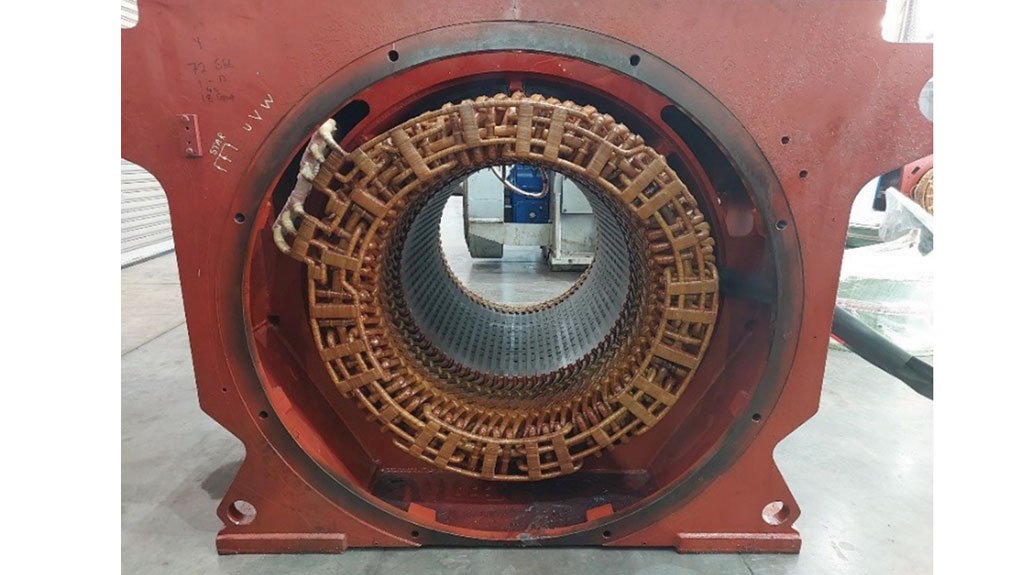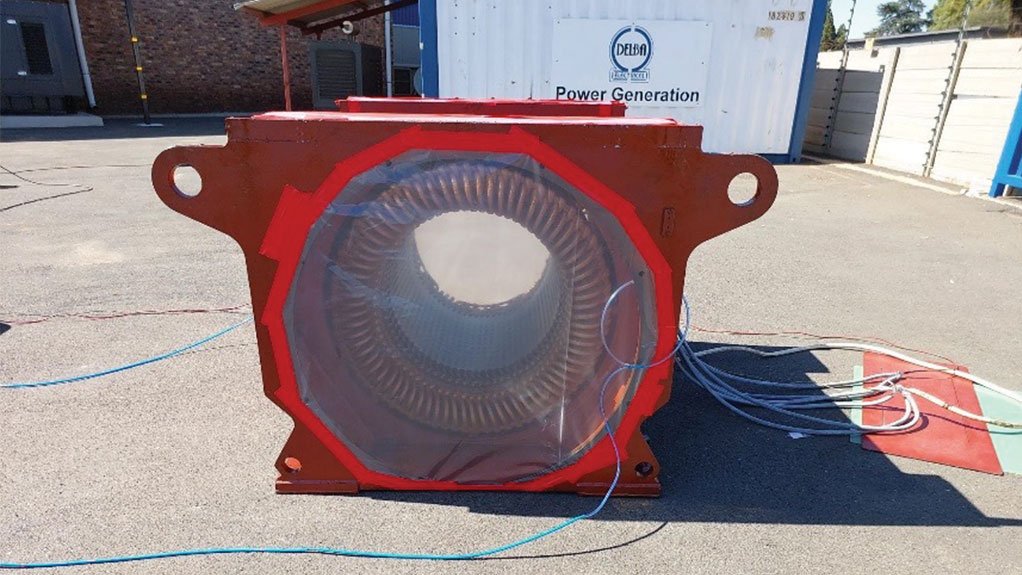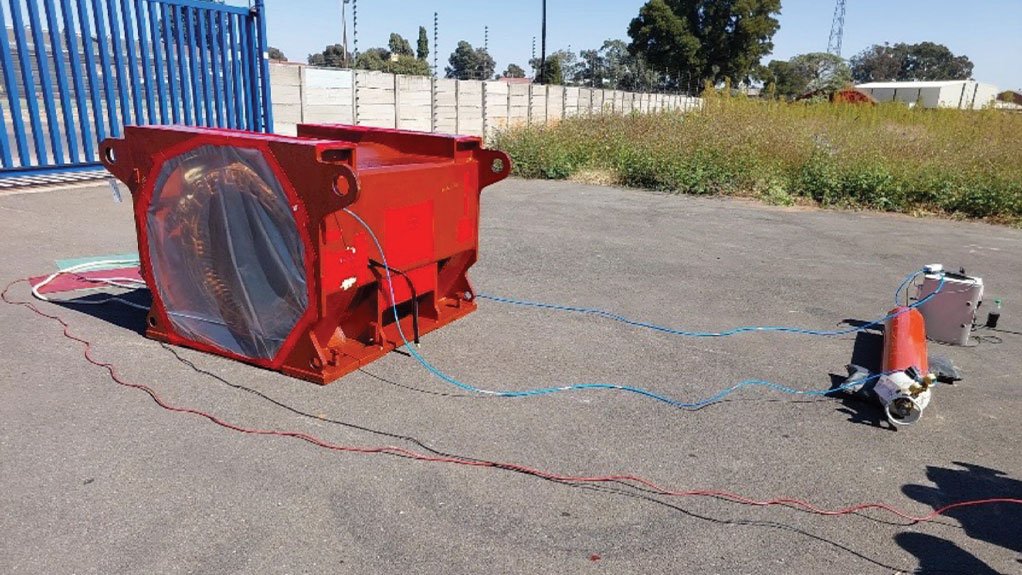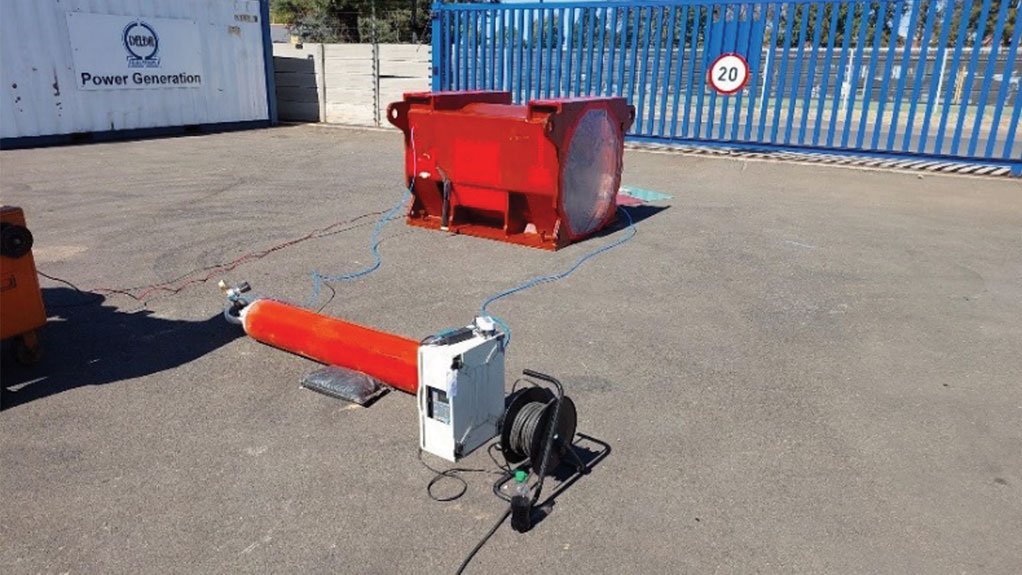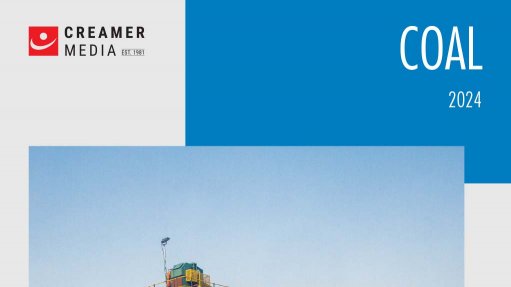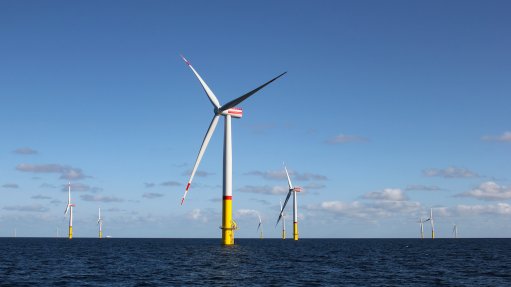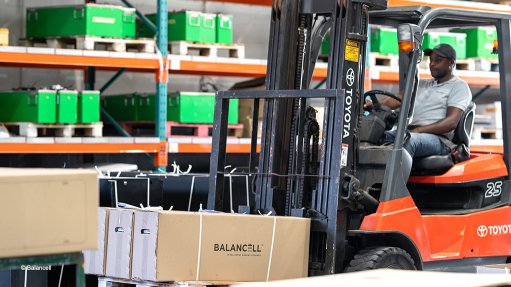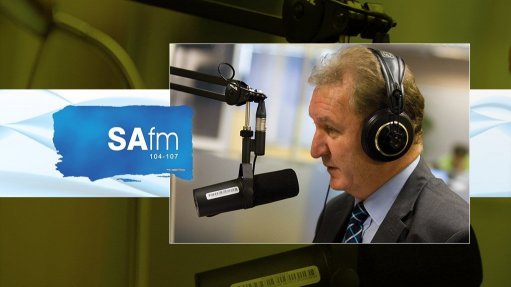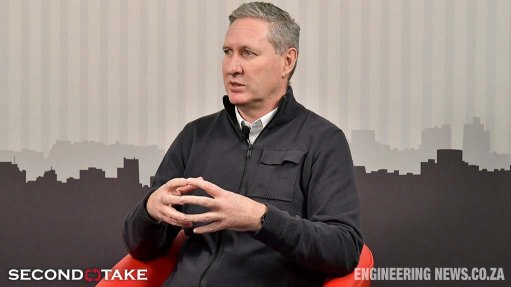Delba Electrical successfully performs steady state ignition tests
The safe operation of electrical rotating machines in the chemical, oil and gas industrial environments where hazardous gas may be present is of great concern. Risks associated with partial discharge (PD) and corona discharge at various locations in high voltage stator windings calls for a critical evaluation method for assessing the safety and reliability of electrical rotating machines.
To understand the behaviour of insulation systems in explosive environments, a steady state ignition test, also known as an “incendivity test”, needs to be performed on a wound stator in gas groups IIA, IIB and IIC as specified in the IEC standard.
The complete winding insulation system, including the connections and leads, must be tested in an explosive test mixture with a sinusoidal voltage of at least 1.5 times the rated RMS line voltage for at least three minutes. The maximum rate of voltage rise must be 0.5 kV/s. The voltage must be applied between one phase and earth, with the other phases earthed and is repeated for each phase. It is in this environmental scenario that no ignition of the test mixture shall occur.
Delba Electrical, a renowned and respected name in the electrical engineering sector, has recently demonstrated its expertise by successfully performing two incendivity tests on a 6.6 kV stator as well as on an 11 kV stator respectively, highlighting its commitment to quality and safety.
The incendivity test is designed to evaluate the electric motor’s ability to withstand high voltage conditions without igniting or sustaining combustion. This test is particularly crucial for motors used in hazardous environments or industrial applications where the risk of fire or thermal incidents are of concern. By subjecting the motor to elevated voltages and assessing its response,
Delba can gauge its fire resistance properties and identify potential weaknesses in winding design or construction.
Delba Electrical’s recent achievements in successfully conducting incendivity tests underscores its proficiency in ensuring product safety and compliance with industry standards. These tests not only validate the quality of the Delba insultation system on certified electrical motors, but also instills confidence with customers regarding their performance under challenging circumstances.
Looking ahead, the role of incendivity testing is poised to become even more significant in the future of electrical motor certification. With advancements in technology leading to the development of more powerful and compact motors, the need for rigorous testing methodologies becomes paramount. Incendivity tests will continue to serve as a benchmark for evaluating motor safety, especially as industries push the boundaries of performance and efficiency.
Further, as environmental and safety regulations become more stringent, manufacturers and suppliers must demonstrate the reliability and resilience of their products. Incorporating incendivity testing into the certification process not only meets regulatory requirements but also ensures that electrical motors meet the highest standards of safety and durability.
The incendivity test on certified electrical motors is a vital component of ensuring safety, reliability and compliance with industry standards. Delba Electrical’s successful performance of incendivity tests reflects its dedication to quality assurance and its ability to deliver products that meet the demanding requirements of modern industries. As technology evolves, incendivity testing will continue to play a pivotal role in shaping the future of electrical motor certification and safety protocols.
Comments
Announcements
What's On
Subscribe to improve your user experience...
Option 1 (equivalent of R125 a month):
Receive a weekly copy of Creamer Media's Engineering News & Mining Weekly magazine
(print copy for those in South Africa and e-magazine for those outside of South Africa)
Receive daily email newsletters
Access to full search results
Access archive of magazine back copies
Access to Projects in Progress
Access to ONE Research Report of your choice in PDF format
Option 2 (equivalent of R375 a month):
All benefits from Option 1
PLUS
Access to Creamer Media's Research Channel Africa for ALL Research Reports, in PDF format, on various industrial and mining sectors
including Electricity; Water; Energy Transition; Hydrogen; Roads, Rail and Ports; Coal; Gold; Platinum; Battery Metals; etc.
Already a subscriber?
Forgotten your password?
Receive weekly copy of Creamer Media's Engineering News & Mining Weekly magazine (print copy for those in South Africa and e-magazine for those outside of South Africa)
➕
Recieve daily email newsletters
➕
Access to full search results
➕
Access archive of magazine back copies
➕
Access to Projects in Progress
➕
Access to ONE Research Report of your choice in PDF format
RESEARCH CHANNEL AFRICA
R4500 (equivalent of R375 a month)
SUBSCRIBEAll benefits from Option 1
➕
Access to Creamer Media's Research Channel Africa for ALL Research Reports on various industrial and mining sectors, in PDF format, including on:
Electricity
➕
Water
➕
Energy Transition
➕
Hydrogen
➕
Roads, Rail and Ports
➕
Coal
➕
Gold
➕
Platinum
➕
Battery Metals
➕
etc.
Receive all benefits from Option 1 or Option 2 delivered to numerous people at your company
➕
Multiple User names and Passwords for simultaneous log-ins
➕
Intranet integration access to all in your organisation



